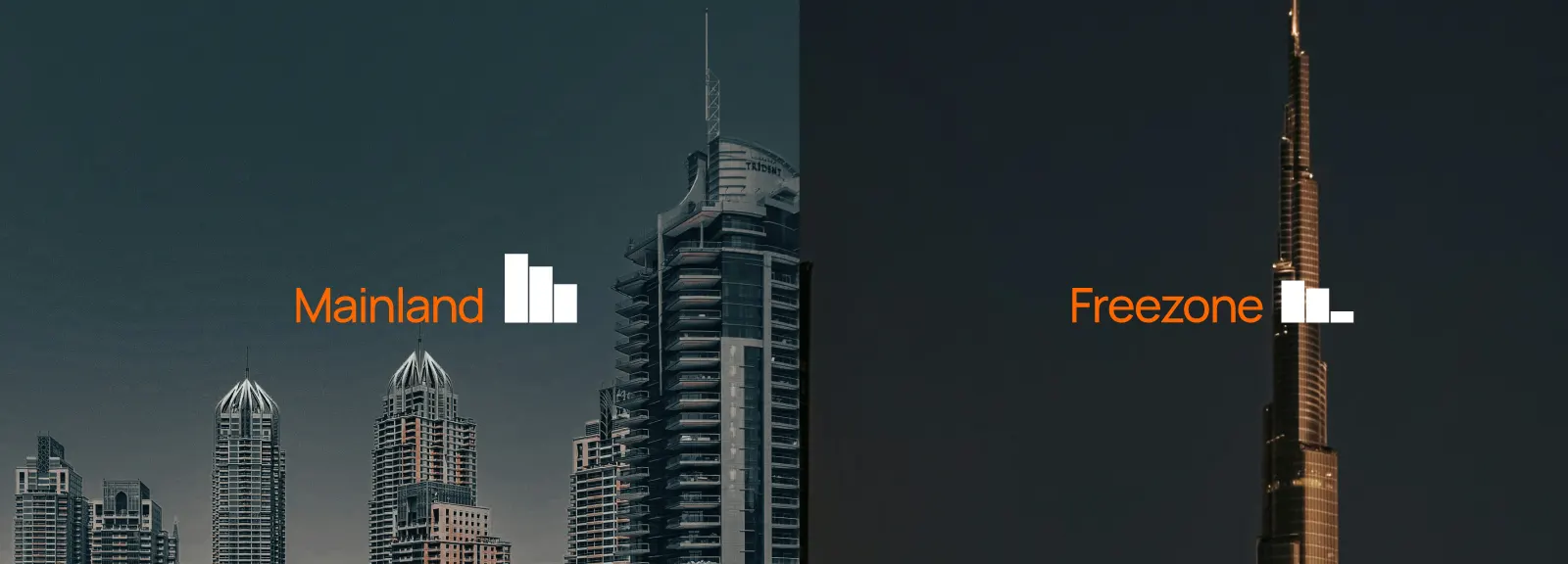Dubai International Financial Centre (DIFC) is a jurisdiction built to foster trust and transparency in financial services. Advisory firms that want to serve high-net-worth individuals, institutions or corporates in the UAE and beyond are increasingly choosing DIFC as their home. But operating in the DIFC isn't a simple plug-and-play move, it requires understanding the licensing environment, particularly the DIFC Category 4 license.
This blog walks you through how to properly structure your advisory or consultancy firm under the DIFC Category 4 license. We’ll cover what the license includes, what services are permitted, how to align your business model with DFSA (Dubai Financial Services Authority) expectations, and how to avoid common missteps. You’ll also get clarity on DIFC company formation, cost implications, and what to expect during the setup process.
Table of Contents
What Is a DIFC Category 4 License?

The DIFC Category 4 license is one of the most sought-after financial services licenses in the UAE for firms that want to operate in a regulated environment without taking on the burden of asset custody, discretionary trading, or fund management. Issued by the Dubai Financial Services Authority (DFSA), this DIFC license category is tailored for firms providing financial advice, arranging investment deals, and distributing investment-related research without managing client money or financial instruments directly.
Who Typically Applies for a DIFC Category 4 License?
The DIFC Category 4 license is ideal for firms that offer financial guidance and analysis but do not execute transactions on behalf of clients. Common applicants include:
- Wealth management consultants who help clients allocate assets across various portfolios but don’t manage or hold those assets.
- Investment research providers that publish in-depth reports, market commentary, or sector analysis.
- Portfolio advisors who make personalized, non-discretionary recommendations.
- Corporate finance consultants involved in M&A advisory, capital raising, and restructuring guidance.
- Institutional advisory firms working with banks, DIFC family offices, or funds on a consultative basis.
The key distinction is that these firms advise, but don’t transact on behalf of clients or take custody of funds.
Permitted Activities Under the DIFC Category 4 License
The DIFC Category 4 license supports a focused range of non-risk activities, including:
- Providing investment advice: Offer personalized investment strategies and recommendations aligned with each client’s financial goals, risk appetite, and time horizon.
- Arranging deals in investments: Act as a connector between clients and third-party providers, such as fund managers, brokerage firms, or banks, without executing trades yourself.
- Distributing or issuing research reports: Generate and distribute investment research to retail or professional clients. These reports may include forecasts, valuations, or qualitative analysis.
- Marketing foreign funds (under specific conditions): Introduce or promote overseas collective investment schemes (CIS) to UAE-based investors, provided the fund is registered or exempted with the DFSA.
- Providing consultancy in wealth planning and succession: Help clients with asset protection, estate structuring, and financial legacy planning especially relevant for private clients and family offices operating in the region.
This level of activity makes the DIFC Category 4 license one of the most flexible and cost-effective options for regulated firms that want to operate in Dubai’s prestigious DIFC environment without holding a balance sheet or assuming financial risk.
Activities Not Allowed Under the DIFC Category 4 License
While the DIFC Category 4 license offers substantial scope for advisory firms, it draws a firm line when it comes to risk-bearing functions. Specifically, it does not allow:
- Holding or controlling client money or assets: Even if you operate through a DIFC holding company, you cannot act as a custodian, trustee, or hold power of attorney over a client’s bank or investment accounts.
- Acting as a fund manager: Managing pooled investments or discretionary portfolios falls under the Category 3C or 3B licenses and is subject to much higher capital and regulatory requirements.
- Providing discretionary portfolio management: Any activity where you make investment decisions and trade on behalf of clients is strictly prohibited under a DIFC Category 4 license.
Understanding the different types of business licenses in Dubai is crucial to avoid costly mistakes, and our comprehensive blog breaks down each license type for better clarity.
Aligning Your Service Model with DFSA Licensing Rules

Before applying for a DIFC Category 4 license, it’s essential to thoroughly review your business model. The DFSA expects your firm’s services to strictly fall within the permitted activities of the DIFC Category 4 license. Offering anything outside this scope risks delays or even reclassification to a more complex license category.
Define your core activities:
Focus on services allowed under the DIFC Category 4 license such as providing investment advice, arranging investment deals, publishing research, and wealth planning consultancy. If your firm plans to manage client assets or provide discretionary portfolio management, you’ll need a different license.
Avoid high-risk claims:
Your firm must not represent itself as an asset manager or promise guaranteed returns. The DIFC Category 4 license only covers advisory and facilitation roles, so avoid language that implies managing client funds or investment performance guarantees.
Clarify your role in execution:
Be explicit that your firm refers clients to execution platforms or intermediaries but does not execute trades or hold client funds. This clear separation is a key compliance requirement under the DIFC Category 4 license.
Limit marketing language:
Ensure all marketing and promotional materials avoid terms like “guaranteed returns” or “exclusive fund access.” The DFSA expects firms with a DIFC Category 4 license to communicate their advisory role transparently and conservatively.
Prepare a service matrix:
Develop a simple document that maps each of your services to the relevant permitted activities under the DIFC Category 4 license. This helps the DFSA quickly understand your business model and reduces questions during the application process.
Operating in a grey area risks the DFSA reclassifying your license requirement, resulting in higher capital needs and longer approval times. Properly scoping your services keeps your DIFC Category 4 license application on track and your costs predictable.
If you’re planning your budget, understanding the Dubai license cost for investors is essential to avoid unexpected costs during your company setup in 2025.
Choosing the Right Legal Structure Inside DIFC
Choosing the right legal structure is a foundational part of setting up under a DIFC Category 4 license. Your entity type determines how you’ll be treated for compliance, taxation, corporate governance, and even investor perception. The DFSA requires that your chosen structure aligns with your service scope and risk profile.
Private Company Limited by Shares (Ltd.)
This is the most common setup for firms applying for a DIFC Category 4 license. It offers 100% foreign ownership, flexibility in issuing and transferring shares, and straightforward compliance with DFSA rules. It’s ideal for independent advisory firms or boutique consultancies aiming to build a long-term presence inside DIFC.
Branch of a Foreign Company
If your firm is already licensed or operating in another jurisdiction, setting up a branch under the DIFC Category 4 license can reduce capital requirements and simplify expansion. The branch operates as an extension of the parent company, but must still comply with local DFSA expectations, including governance and reporting standards.
Subsidiary Structure
For corporate groups entering DIFC, a subsidiary gives you a separate legal identity while still remaining under the parent company’s ownership. This structure is often chosen by investment networks or multi-jurisdictional firms seeking a standalone advisory unit under the DIFC Category 4 license. It also supports better risk containment and branding flexibility.
Key setup elements include:
Every firm applying for a DIFC Category 4 license must lease a physical office within DIFC, not a virtual or flex desk. You’ll also need to meet the minimum share capital requirement of USD 10,000 to 25,000 and appoint a board of directors aligned with DFSA’s governance standards.
Choosing the right legal structure is essential, and our guide on the legal structure of a business can help you pick the best option for growth and compliance in the UAE.
Appointing Authorized Individuals (Key Persons)

Under the DIFC Category 4 license, firms are required to appoint specific individuals who will be held accountable for governance, compliance, and daily operations. These roles are critical to DFSA’s assessment during the application process.
Senior Executive Officer (SEO)
The SEO must have at least 10 years of senior-level experience in financial services and reside in the UAE full-time. For firms under a DIFC Category 4 license, the SEO is the primary contact with DFSA and must demonstrate deep knowledge of the firm’s activities.
Compliance Officer (CO)
The CO ensures your firm’s policies align with DFSA’s rulebook and monitors ongoing compliance. Under the DIFC Category 4 license, this person must operate independently of sales and client-facing functions to avoid conflicts of interest.
Money Laundering Reporting Officer (MLRO)
The MLRO is responsible for monitoring and reporting any suspicious financial activity. For firms with a DIFC Category 4 license, this role can be combined with the CO, but must still meet DFSA’s criteria for independence and experience.
Finance Officer
This role manages financial reporting, audit readiness, and capital adequacy requirements. Even under a DIFC Category 4 license, financial accuracy is non-negotiable, and DFSA expects the finance officer to maintain complete records for inspections.
Each appointment undergoes DFSA’s “fit and proper” test, which includes background checks, CV reviews, and sometimes in-person interviews. Weak or unqualified appointments are a top reason for delays in the DIFC Category 4 license approval process.
Building Your Internal Compliance and Governance Framework
Once your authorized individuals are in place, the next critical step under a DIFC Category 4 license is to build a documented, working compliance system. The DFSA expects to see real policies. Not just templates that reflect your business model.
Compliance Manual
This document outlines how your firm meets DFSA rules under the DIFC Category 4 license. It must cover internal procedures for handling advice, deal arrangement, conflict of interest, and escalation paths.
AML/CFT Policy
Firms licensed under a DIFC Category 4 license must document how they prevent money laundering and terrorism financing. Your policy should include KYC procedures, client screening tools, and ongoing monitoring protocols.
For firms looking to ensure tax compliance alongside operational governance, our VAT filing in UAE guide provides detailed insights into aligning with corporate tax requirements.
Risk Assessment Matrix
You’ll need a matrix that identifies potential risks by client type, product type, and jurisdiction. For a DIFC Category 4 license, this helps show you understand and control exposure even without handling client assets.
Audit Trail Tools
The DFSA requires reliable recordkeeping for all advisory activities. Under the DIFC Category 4 license, your firm must log client interactions, emails, meeting notes, and research outputs in a retrievable format.
Training & Certification Records
Staff must complete regular AML and compliance training. If you hold a DIFC Category 4 license, the DFSA may request proof of training completion and dates during audits or supervisory visits.
Many firms fail DFSA assessments because they rely on spreadsheets or email chains. Cloud-based tools like VComply, ComplyAdvantage, and Airtable are safer choices for firms operating under a DIFC Category 4 license.
Step-by-Step Setup Process for a DIFC Category 4 Firm

Here’s what the typical DIFC Category 4 license journey looks like:
1. Internal Scoping
Define your firm’s service offerings and make sure they fit the permissions under a DIFC Category 4 license. This stage includes strategic decisions around licensing scope, ownership, and initial compliance planning.
2. DIFC Company Incorporation
Register your legal entity with the DIFC Registrar of Companies. You must submit your Memorandum and Articles of Association, lease a physical office, and choose a structure suited to your DIFC Category 4 license.
3. Regulatory Business Plan Drafting
Prepare a detailed business plan for DFSA review. This includes descriptions of services, your client base, org chart, financial forecasts, and risk management, framed around your DIFC Category 4 license activities.
4. DFSA Application Submission
Submit your full application with DFSA, including all compliance manuals, AML policies, financial models, key person CVs, and declarations. Accuracy is critical at this stage to avoid delays in the DIFC Category 4 license process.
5. DFSA Interviews
Your SEO, CO, and MLRO will be interviewed by DFSA. These sessions test their grasp of DFSA rules and the firm’s internal setup as required under the DIFC Category 4 license.
6. Final DFSA Feedback
DFSA may request minor updates or clarifications after initial review. These could involve changes in wording, additional documentation, or minor corrections before granting your DIFC Category 4 license.
7. License Issuance
Once approved, DFSA will issue your DIFC Category 4 license, allowing you to begin regulated activity. You can then open a business bank account in Dubai and begin full operations from DIFC.
Estimated timeline: 3 to 5 months, depending on your document readiness, DFSA feedback cycle, and responsiveness during the approval process.
If you’re new to Dubai, our step-by-step guide on how to start a company in Dubai in 2025 walks you through every step from licensing to operations.
Common Mistakes Firms Make (and How to Avoid Them)
Licensing rejections are common not due to bad intentions but poor preparation.
Rushing your DFSA application
Many firms underestimate how thorough the DFSA is when reviewing category 4 license DIFC submissions. Incomplete forms, vague business models, or inconsistent timelines often lead to delays or outright rejections.
Appointing underqualified personnel
Appointing key individuals without DFSA-relevant experience is a major red flag. Your category 4 license DIFC application depends heavily on the credibility of your SEO, CO, and MLRO, so choose carefully.
Submitting incomplete policy documents
Firms often reuse templates without customizing them to their operations. The DFSA expects your compliance manual and AML policies to reflect real business risks under a category 4 license DIFC setup.
Underestimating compliance obligations
The DFSA doesn’t just look at your launch plan, they assess how you’ll maintain compliance over time. If you can’t demonstrate long-term control systems, your category 4 license DIFC process will likely stall.
Using offshore entities that DFSA flags
Trying to route control through complex offshore structures can raise regulatory concerns. The DFSA prefers clear ownership when reviewing category 4 license DIFC applications, especially if tied to advisory services.
Don’t Let Licensing Mistakes Hold You Back

Most firms don’t fail in DIFC because their business model is wrong. They fail because they misunderstand the process. Whether it’s choosing the wrong legal structure, submitting vague policy documents, or hiring unqualified personnel, these mistakes delay approvals and damage credibility. A poorly prepared category 4 license DIFC application can set you back 3 to 6 months or more.
At GCG Structuring, we help advisory and consultancy firms build fully compliant operations under a category 4 license DIFC. From defining your licensing scope to liaising with DFSA, we handle every step with precision. We ensure your DIFC company formation, documentation, key personnel, and internal governance all meet regulatory standards without guesswork.
With us, you don’t just get approval. You get a launch-ready structure, built to last in Dubai’s most respected financial jurisdiction.
FAQ
1. 0 How long does the licensing process take?
Usually 3 to 5 months, depending on how prepared your documents and team are.
2. 0 Do I need to be in Dubai?
Yes, at least one senior team member must be based in the UAE full-time.
3. 0 Can I offer services before getting the license?
No. You must wait until the license is officially approved.
4. 0 Is a virtual office enough?
No. You need a physical office inside DIFC. Virtual spaces don’t qualify.
5. 0 What if my application is rejected?
You can reapply, but fixing mistakes later can cost months. Better to get it right upfront.





